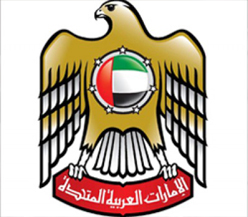Media Center
World Government Summit adopts exclusive membership system
The World Government Summit Organisation has adopted a new membership system for participating in its activities and initiatives as it prepares to host the fifth World Government Summit from 12th-14th February 2017.
The new measure seeks to encourage long-term relations between the organisation and its members, allowing them to attend and participate in its events, meetings, and seminars throughout the year.
By implementing the new system - the most notable development in the lead-up to the Summit - the organisation hopes to bolster its role as a global platform that allows its members to keep up with issues that concern their future, as well as with the best solutions proposed to counter challenges that may arise in various sectors. This, in turn, stands to cement the Organisation’s status as a year-round knowledge- and development-driven institution - one that the UAE offers to the world.
The new system fulfils the aspirations of members who have been taking part in the World Government Summit since its establishment, and have lauded the Summit’s pivotal role in many fields that benefit society, Omar Sultan Al-Ulama, Director of the World Government Summit Organisation, explained. "This underlines the importance of attracting and retaining new members to affirm the Summit’s global status."
"The World Government Summit has reached a stage of maturity and outreach that has drawn the attention of governments, institutions, and individuals all around the world," Al-Ulama added. "Anyone seeking knowledge, reliable information, and future-focused studies and subjects can benefit from attending the Summit, which strives to play a role in shaping the future, and supporting any individual or institution that can affect positive change and a paradigm shift in government work," he said.
The new membership system encourages organising more events - an added value for members keen on keeping up with the latest trends. The Summit seeks to support the government of the future and, to that end, periodically launches initiatives that strive to strengthen cooperation and communication between governments, private-sector institutions, entrepreneurs, and international organisations.
The new system comes with many perks, including exclusive invitations to attend the Summit and communicate directly with its top speakers and attendees. Members will also have priority to receive the programmes and reports issued by the Summit, and gain exclusive access to private functions held on the sidelines of the event.
What is more, the membership programme offers access to training workshops and executive education programmes hosted by the organisation in collaboration with top experts and specialists. These programmes are provided exclusively to ministers and executives, allowing them to acquire new skills through intensive training sessions that condense the material and saves the trainees time and effort.
The summit also presents an opportunity for members to prepare and submit articles and studies in their areas of expertise, which will then be published in the Organisation’s official blog. This enables members to actively participate in the global knowledge-based economy. Members can also take part in the Organisation’s year-round Roundtable, which brings together influential leaders from both the public and private sectors to discuss the future of their sectors, in addition to exchanging experiences and building partnerships locally, regionally, and internationally.
The annual World Government Summit brings together government officials, thought leaders, policymakers, and private-sector executives to explore the latest developments, trends, and visions in a bid to use them to improve government. Previous editions of the Summit drew high-profile speakers and top international experts, in addition to more than 4,500 personalities from 93 countries around the world.
The World Government Summit Organisation operates throughout the year, focusing on the future prospects of all economic sectors. The Organisation produces knowledge for the governments of the future, launches global reports and development indices, and forges partnerships with world-leading international organisations, such as the United Nations, the Gulf Cooperation Council (GCC), the Arab League, the World Bank, the Organisation for Economic Co-operation and Development (OECD), and the World Economic Forum – Davos.


